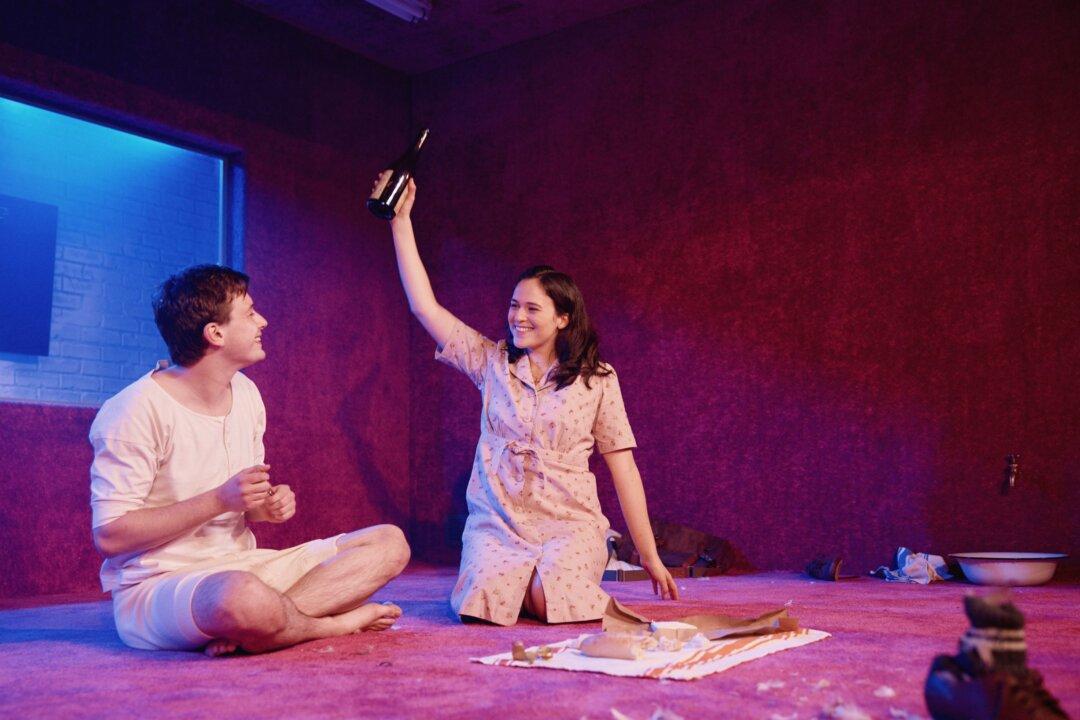NEW YORK—“The heart wants what the heart wants.” A time-worn cliché to be sure, but one all too true in Rita Kalnejais’s “This Beautiful Future” at the Cherry Lane Theatre. The play is a somber and surprisingly touching drama about the possibilities love can bring.
The story takes place in August of 1944, in a bedroom of an abandoned home in Chartres, France, approximately 56 miles from Paris. It is here two young people, Otto (Uly Schlesinger), a somewhat reserved German soldier, and Elodie (Francesca Carpanini), a boisterous Frenchwoman, will meet for what will turn out to be the most important night of their lives.





